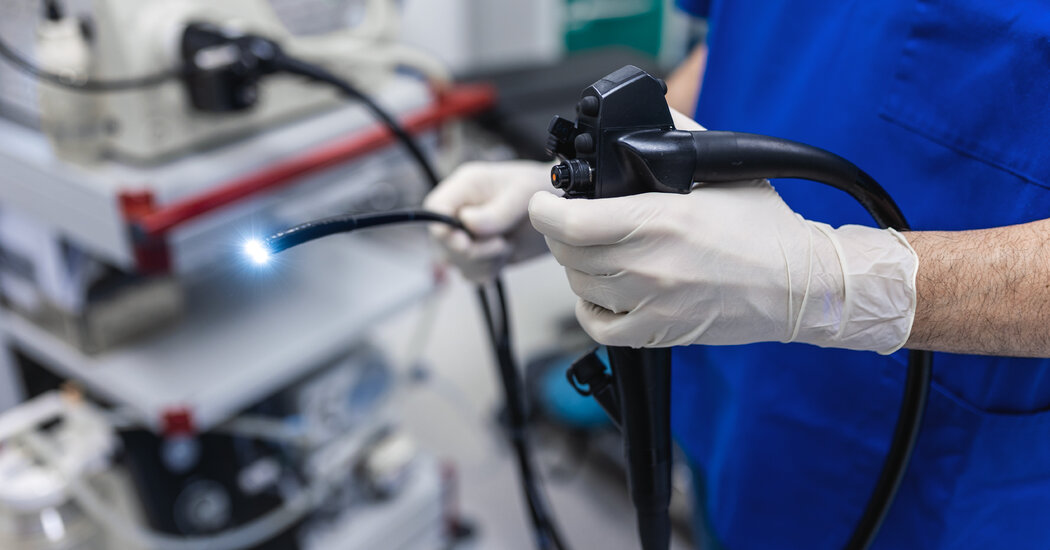Doctors can provide alternative forms of screening for colon and rectal cancer but sometimes have a good reason to stick with the colonoscope.
This year about 53,000 Americans are expected to die from colon or rectal cancer. Doctors say most people should start getting screened at age 45. Yet many who are eligible skip testing.
When most people in this country think of colon cancer screening, they think of colonoscopies, which let doctors examine the colon but can be inconvenient. Yet there are other equally acceptable options for screening.
If more people knew about other kinds of colorectal cancer testing, some experts hope, perhaps some who put off colonoscopies would be screened and deaths from colon cancer could be avoided.
Here’s what you need to know about colonoscopies and fecal tests, which to ask for, and why your doctor might be recommending one over the other.
How do colonoscopies and fecal tests work?
Colonoscopies are widely used, but there is another option available: fecal tests.
Both types of test attempt to find cancers and large polyps — growths on the wall of the colon — that occasionally turn into cancers. Cancers that are found early often can be cured when doctors simply cut them out. Finding and removing polyps can also prevent cancers.
Colonoscopies start with a patient’s taking strong laxatives to empty the colon. On the day of the test, the patient is sedated. Then, a doctor inserts a colonoscope — a flexible tube with a video camera at the end — into the rectum and colon and looks for polyps and cancers to remove. The doctor may also take samples for study in a lab.
